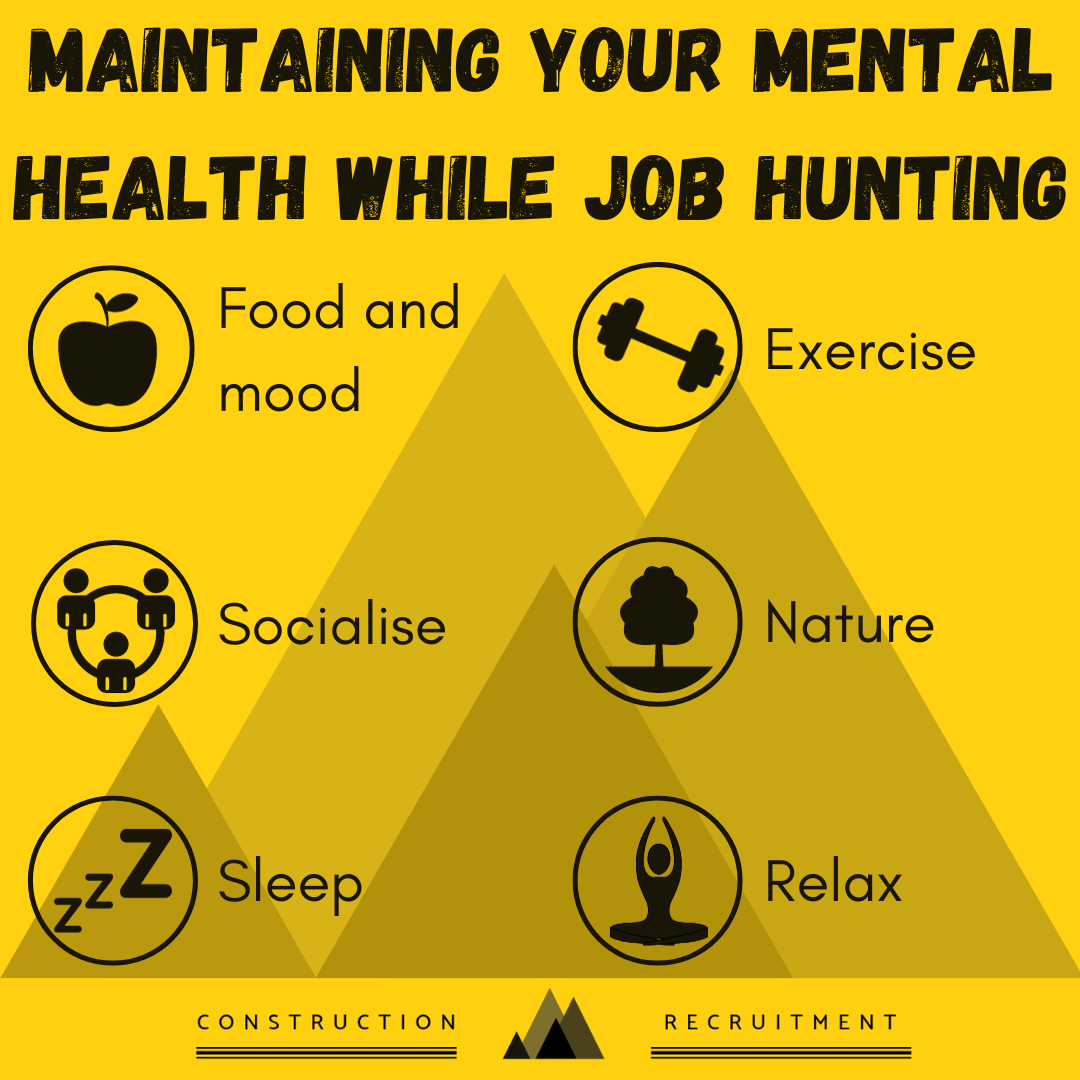
11 Mar Taking Care of Your Mental Health When Job Hunting
Job hunting can be uncertain, frustrating and arduous. Anxiety and stress are perfectly normal responses to this situation. On top of this, 2020 and 2021 have thrown enormous changes and challenges our way. That’s why maintaining our mental health when searching, applying and interviewing for jobs is important. Here are our tips to best look after your mental health when looking for a new job.
- Food and mood
Improving your diet can help improve your mood, give you more energy and help you think more clearly:
- Avoid blood sugar crashes by not skipping breakfast, avoiding sugary snacks and sticking to slow energy-releasing, whole grain foods
- Stay hydrated – try to drink between 6-8 glasses of water a day
- Get your 5 a day (fresh, frozen, tinned, dried and juiced all count!) One portion is usually the size of your fist
- Look after your gut with live yoghurt, plenty of fibre (fruit & veg, wholegrains, beans & pulses) and exercise
- Stock up on brain chemical regulating amino acids through protein in lean meat, fish, eggs, cheese, legumes, soya, nuts and seeds
- Cut down caffeine by limiting tea, coffee, chocolate, cola and manufactured energy drinks
- Your brain needs fatty acids found in oily fish, poultry, nuts, olive and sunflower oil, seeds, avocados, milk, yoghurt, cheese and eggs
2. Loneliness
Whether you’re not working and spending more time alone or feel as though you can’t confide in your colleagues and are feeling isolated, loneliness can be a common problem when job hunting. Try these suggestions to manage feelings of loneliness:
- Join an online community – perhaps one related to your dream career
- Make new connections outside of work – try a new class or volunteering
- Be careful on social media – remember it shows edited lives so try not to compare yourself to others as it can harm your self-esteem
- Spend time with animals – either pets of friends and family or at outdoor community projects across the UK
3. There’s a close relationship between sleep and mental health and it can be easy to fall into a negative cycle of poor sleep and mental health. Lack of sleep causes tiredness, which can make coping with daily life more difficult leading to worry or stress and further lack of sleep. Try to keep to a regular routine of sleep and avoid screens 1-2 hours before bed. If sleep remains a problem for you, seek advice from your GP.
4. Exercise releases feel-good hormones and cortisol which helps us to manage stress. Joining a fitness class can not only give you these benefits but can also improve your sleep quality and is an opportunity to connect with new people. Being active doesn’t always require class fees or expensive gym memberships though. It can be as simple as a walk around your neighbourhood.
5. Spend time outside! Be sure to give yourself breaks from job searching and applications to spend time in nature. This can not only improve your mood but also reduce loneliness and help you become more active.
6. A more immediate strategy to manage stress and anxiety is relaxation. Different relaxation techniques work for different people at different times but here are 4 tips to try to help you relax:
- Take a break – it’s ok to take a break and your applications may even be stronger when you return to working on them well rested
- Focus on your breathing – breathing deeply can lower your heart rate and make you feel calmer
- Get creative – focusing on a task can take your mind away from the stresses and worries that may be bothering you
- Picture yourself somewhere safe and peaceful
If you’re finding things very hard right now and these tips don’t feel possible, it’s ok to ask for help. See Mind’s pages on seeking help for a mental health problem for guidance on talking to your doctor about options for support and treatment.
Article Resource: https://www.mind.org.uk/
Contact Information:



